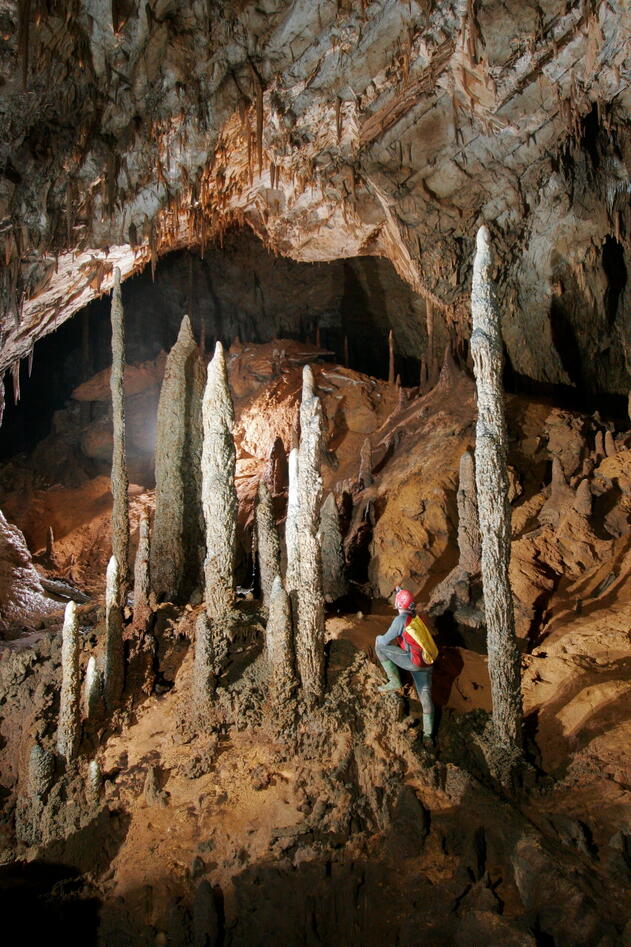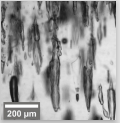A tropical view on major global climate change during a glacial-interglacial transition based on microthermometry in stalagmites
This Master's project was assigned to Thomas Bergh who started the Master's program in Earth sciences, UiB, fall 2024. The Master's project is given by the research group Quaternary geology & paleo climate.
Main content
Project description
Motivation (background):
Climate change in the tropics is among the most uncertain aspects of future climate change. Fortunately, geologic archives of past climate allow us to study how climate in these regions varied under large climatic changes in the past. Stalagmites are particularly valuable archives, as they can cover large time intervals and can be dated with U-series dating. We have recently established a new method to reconstruct temperatures from microscopic inclusions of ancient drip waters, preserved in the stalagmites. Temperatures are reconstructed by determining the density of this fluid inclusion water through observing its behavior during cooling and heating under a microscope. This method yields uniquely precise temperature estimates that greatly improve our understanding of past climate on land.
We are currently using this microthermometry method on well-dated samples from Borneo in the tropical West Pacific, to find out how tropical temperatures behaved during different climate events in the past. For this master thesis, we propose to investigate a time period covering the transition from a glacial to an interglacial period, characterized by large changes in climate worldwide. The results will allow a detailed characterization of the magnitude and timing of tropical temperature change. These findings will be compared to other glacial-interglacial transitions in Borneo, as well as other climate records from different locations and variations in atmospheric CO2 concentration.
Research question:
The proposed work will help understand the key influences on tropical temperature change. This knowledge will improve our general understanding of the connections between low and high latitude climate, and the effects of greenhouse forcing on tropical climate.
Specific questions to be addressed are:
- When and how quickly did tropical temperature change during the study interval?
- How does the timing and structure of the observed change compare to changes in CO2 and to other climate records (e.g., from high latitudes)?
- Are these findings similar or different to previous results from Borneo for other time intervals?
Proposed course plan during the master's degree (60 ECTS):
Autumn:
GEOV222 (10P)
GEOV228 (10P)
GEOV300 (5P)
Spring:
GEOV302 (10P)
GEOV331 (5P), or GEOV324 (5P) in the autumn
(GEOV241 (10P))
Plus 10 stp depending on your interests
Work:
The work will consist of preparing and analyzing samples in the fluid inclusion laboratory at GEO, data correction and analysis, and comparison to existing climate records for the same time period. The master student will be part of a team working on applying and further developing the fluid inclusion method in the framework of the FluidMICS project.
Estimated total duration of lab work: 6 months

